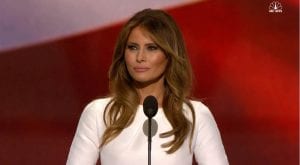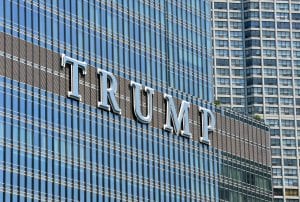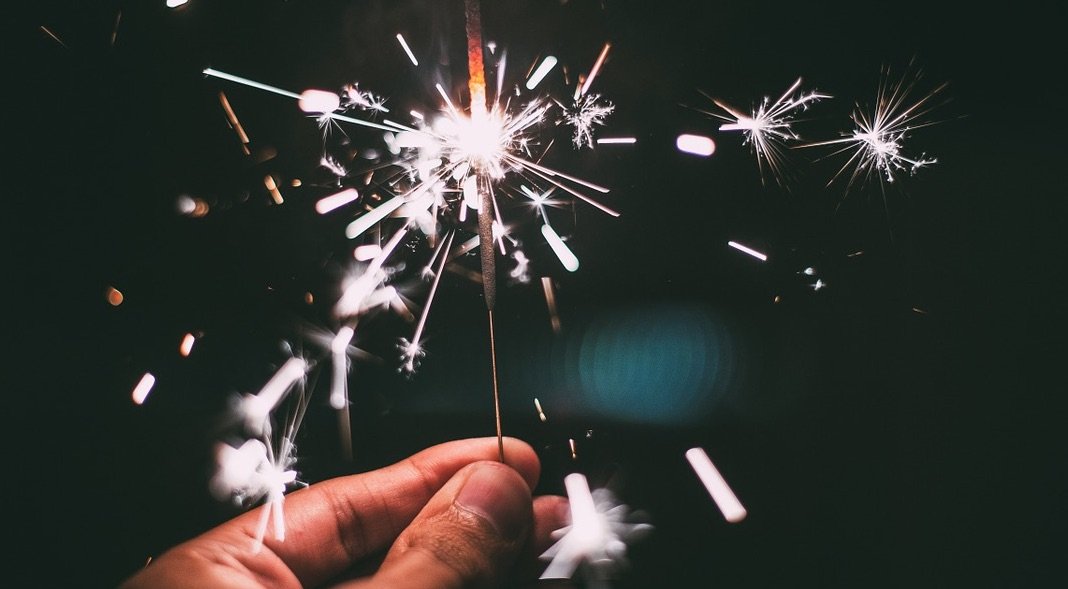Copyright and Plagiarism in 2017 (And 2016)
Once more unto the breach...
 Last year, I began my new tradition of doing my look back and look ahead in the same post. Since the two are hopelessly linked, it only makes sense to tackle them in the same breath.
Last year, I began my new tradition of doing my look back and look ahead in the same post. Since the two are hopelessly linked, it only makes sense to tackle them in the same breath.
However, this year that’s a bit more difficult to do than usual. A new administration, impending copyright reform and shifting attitudes make 2017 seem less like an extension of 2016 and more like something completely new.
So what is coming? We can try to read the tea leaves all we want but the best thing we can do, even in these uncertain times, is look backward first.
So, with that in mind, here’s first a look back at the year that was, including some of the themes that dominated 2016.
5 Copyright and Plagiarism Keys from 2016
 While there isn’t much doubt as to what the bigger stories of 2016 were, there are a lot of ways that you can interpret them. That’s because even the most simple copyright stories have multiple themes.
While there isn’t much doubt as to what the bigger stories of 2016 were, there are a lot of ways that you can interpret them. That’s because even the most simple copyright stories have multiple themes.
That being said, here’s a look at how I broke down the big stories from 2016 and the themes I saw.
- Testing the Boundaries: The boundaries of copyright were heavily tested in 2016. The major cases of the year involved a monkey trying to claim copyright in a selfie, whether “Happy Birthday” to you was public domain or not and the copyrightability of cheerleader unfiorms. Couple this with the appeals court decision ruling APIs could be copyright protected in 2015 and it’s been an interesting few years for boundary testing.
- The Aftermath of Blurred Lines: The Blurred Lines verdict was the big shocker of 2015. When the jury found that Robin Thicke and Pharrell Williams had infringed upon Marvin Gaye’s Got to Give it Up, it sent shockwaves through the music industry and they were felt in 2016. Though Led Zeppelin prevailed over accusations of infringement in Stairway to Heaven, that lawsuit was filed in 2014. 2016, instead, was the year Ed Sheeran was sued over Photograph, Justin Bieber over Sorry, Demi Lovato over Stars and the list goes on. Though such lawsuits were common before the Blurred Lines ruling, it was clear some musicians were emboldened by it, which may be part of why so many other musicians have petitioned the Appeals Court to overturn it.
- Music Licensing: Music licensing has become a very ugly topic in recent years and 2016 was a banner year for it. Whether it was record labels complaining Facebook isn’t licensing music, that YouTube isn’t paying enough for its licenses and ongoing fights before the Copyright Royalty Board. However, it’s not just the cost of the license that’s at issue. The licensing process itself is under scrutiny with battles over the consent decrees that the major performing rights societies operate under and even a push by nearly all parties to have Congress take up music licensing reform. But now there are even questions as to what needs to be licensed, such as with the ongoing battles over pre-1972 sound recordings.
- Copyright Out of the News: Though there were a lot of big stories in 2016, copyright didn’t make a lot of headlines. While the “Monkey Selfie” case captured some attention and the lawsuit over Happy Birthday to You was good for a few headlines, the topic didn’t make big waves in the mainstream media. Much of that is due to the fact the U.S. was in the throes of an election and copyright was not one of the topics at the forefront during it. Even as the Register of Copyrights was suddenly dismissed, much of the media didn’t pay attention. Even among tech and other communities that usually place a high emphasis on copyright, there were other things to think about in 2016.
- Plagiarism In the News: If copyright was out of the news, plagiarism was very much in the news. However, that landscape was dominated by one story and one story alone, the Melania Trump plagiarism scandal. I joke not when I say the day after that was among the most insane in my life. While it wasn’t the first political plagiarism scandal, both Barack Obama and John McCain were accused of plagiarism in the 2008 election, it was the first to happen at such a big stage and, worst of all, from a political opponent. However, as evidenced by the outcome, it had little bearing on the election itself.
All in all, 2015 was a major year for copyright but, outside of a few moments, only a few people were really paying much attention. Even as the House Judiciary Committee wrapped up its evaluation of copyright law and chaos erupted at the U.S. Copyright Office, not a lot of people were watching.
Instead, almost all eyes were on the election and now the new administration. That brings us to…
Copyright and Plagiarism in 2017
 Usually this is where I saw something like “Year X is in the books but it gives us a look at what is ahead in X+1.” However, I really can’t do that this year.
Usually this is where I saw something like “Year X is in the books but it gives us a look at what is ahead in X+1.” However, I really can’t do that this year.
Sure, there are many things that are at least somewhat predictable but with a new administration and proposed copyright reforms, there are a lot of unknown variables at play.
Essentially, if every year is a page, it feels to me as if we are between two chapters in a book. Sadly, that leaves us with little clue what is coming even though we know some major things will likely be happening.
- Government Uncertainty: The new administration, along with the new Congress, brings with it a great deal of uncertainty as President-Elect Trump has said very little on the subject of copyright. Marla Grossman and Gene Quinn at IP Watchdog do probably the best breakdown of how he likely feels by looking at his likely Supreme Court picks and other officials, but, as they said, making guesses is a “fool’s errand” at this time. We have speculation, but little to no information, about what kind of President Trump will be on matters of copyright. However, one thing that is certain is that it will be a low priority for him, especially in the first few months. Other issues, such as healthcare and placing a Supreme Court Justice are much higher on his agenda.
- Still, Change is Likely Coming: Despite the uncertainty and lack of heightened interest, change is likely coming. The House Judiciary Committee wrapped up its review of copyright law in 2016 and already the first act, the Fairness for American Small Creators Act, has come out of it (Along with a Senate counterpart). The act proposes a copyright small claims court but other areas of reform are likely coming including music licensing reform, modernization of the U.S. Copyright Office and more. Even though these are not front-burner issues, they may be non-controversial enough to be seen as easier bills to pass.
- DRM Again: Outside of misuses of it for physical products (such as locking down printers), Digital rights management (DRM) tools didn’t make a great deal of news in 2016. However, that may make a lot in 2017. First off, Denuvo, the previously unbreakable DRM used on many high-end PC games, was finally broken in 2016 restarting the cat and mouse game. However, the real DRM news could come from an unlikely, place, the VidAngel case. VidAngel is a movie streaming service that lets users “buy” films for $20 and then resell them for $19, essentially making them $1 per stream. In December, a judge issued an injunction against them due to their breaking of DVD DRM in order to create their streams. The injunction is on appeal and putting DRM circumvention rules back in the eyes of higher courts.
- More Music Copyright Lawsuits: This is easily the safest bet on this list, but it’s almost guaranteed that there will be multiple more music-related copyright infringement lawsuits in the new year, most targeting established musicians. The Blurred Lines verdict and the Raging Bull ruling, which made it easier to file lawsuits on older cases, have combined to embolden plaintiffs and the fact that Led Zeppelin, despite winning their case, were not able to recoup legal costs, there’s little reason for it to stop. Even if the Blurred Lines verdict is overturned or simply has no real impact on case law, there’s a lot of emboldened potential plaintiffs out there, who see opportunity and have little to lose.
- Plagiarism Out of the News: 2016 was a big year for plagiarism news, however, that likely won’t be repeated in 2017. Big media-dominating stories like the Melania Trump one come along rarely and are usually tied to political campaigns. With no elections there’s little likelihood of a repeat, at least in the U.S. Still, it will be interesting to see how the dialog around plagiarism changes following the Melania Trump story. It put the word plagiarism in every living room in the country, it’s bound to have an impact.
All in all, 2017 is something of an enigma right now. Though, obviously, there will be a lot of carry over from 2016, there are also some very large unknowns right now and it’s unclear how they will impact the copyright landscape.
If I were going to give any advice for 2017, it would simply be this: Wait and see.
Bottom Line
I can’t think of a single year that’s begun with less certainty in copyright than 2017. Stakeholders are in for a ride but what kind of ride remains to be seen.
The best thing we can do right now is hang on and follow what does happen. Most likely, we’ll have a better understanding of the trajectory of this new year sooner rather than later.
In the meantime, if you want additional introspection on what 2017 means for copyright law and copyright policy, Terry Hart at CopyHype did his own, extremely detailed, analysis. I definitely recommend checking it out.
Hope that you all had a great holiday season and we are glad to be back to work here!
Want to Reuse or Republish this Content?
If you want to feature this article in your site, classroom or elsewhere, just let us know! We usually grant permission within 24 hours.
